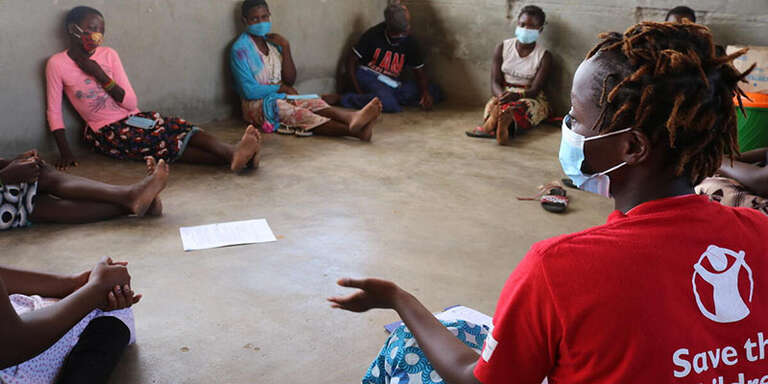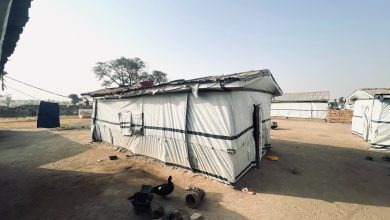Over 336,000 Children Separated From Parents Fleeing Conflict In Mozambique – International Group
The number of unaccompanied or separated children fleeing Cabo Delgado for resettlement centers in Montepuez has increased by 40 per cent in July.

More than 336,000 children have been displaced by the escalating conflict in Cabo Delgado, in the northern province of Mozambique, according to a new report by Save the Children.
The conflict which started in 2017 over the government’s poor response to local grievances on poverty and control over land resources, has displaced more than 700,000 people in Mozambique.
According to the international child rights group, over 5,000 people moved from Palma to other districts as a result of the conflict in the last week of June alone.
This, it noted, contributed to the increase in the number of unaccompanied or separated children fleeing Cabo Delgado for resettlement centers in Montepuez by 40 per cent in July, 2021.
At the end of June, the report said, the number of displaced children increased from 395 to 550 by the end of July. The increase showed the impact of the ongoing conflict in Mozambique on children, the group noted.
“We have registered an average of five unaccompanied or separated children per day arriving in camps last month. Many of these children were separated from their parents or caregivers while fleeing for their lives during the conflict,” Chance Briggs, Save the Children’s Country Director in Mozambique said in a statement on Monday, Aug. 9. “Others had lost their parents to the violence.”
Briggs said the group was concerned for the mental and physical wellbeing of children in Cabo Delgado, adding that separated children face challenges in meeting their basic needs.
“The crisis in Cabo Delgado is a children’s crisis. As such the needs of children must be at the peak of any regional response,” he said. “These children rely on the adults in their lives including their political leaders to protect them.”
According to him, the group had reunited 63 children with their parents or primary caregivers, while the remaining children “are being hosted by foster families or in other forms of temporary accommodation.”
The group’s country chief called on international donors to increase funding to the humanitarian response in Cabo Delgado.
He said a sum of US $66 million funding gap between the needs identified and the amount committed by global actors meant fewer protection services for vulnerable children, less mental health support for children and less food and water to keep children healthy.
“We call on all parties to this conflict, including the newly arrived international forces, to ensure that children are protected in Cabo Delgado. All actors must respect international humanitarian and human rights laws and take all necessary actions to minimise incidental civilian harm,” he said.
He added that greater monitoring must also take place of any violations, including through the Office of the UN Special Representative of the Secretary-General for Children in Armed Conflict mechanism so that the perpetrators of violence against children can be held to account.
Support Our Journalism
There are millions of ordinary people affected by conflict in Africa whose stories are missing in the mainstream media. HumAngle is determined to tell those challenging and under-reported stories, hoping that the people impacted by these conflicts will find the safety and security they deserve.
To ensure that we continue to provide public service coverage, we have a small favour to ask you. We want you to be part of our journalistic endeavour by contributing a token to us.
Your donation will further promote a robust, free, and independent media.
Donate HereStay Closer To The Stories That Matter




